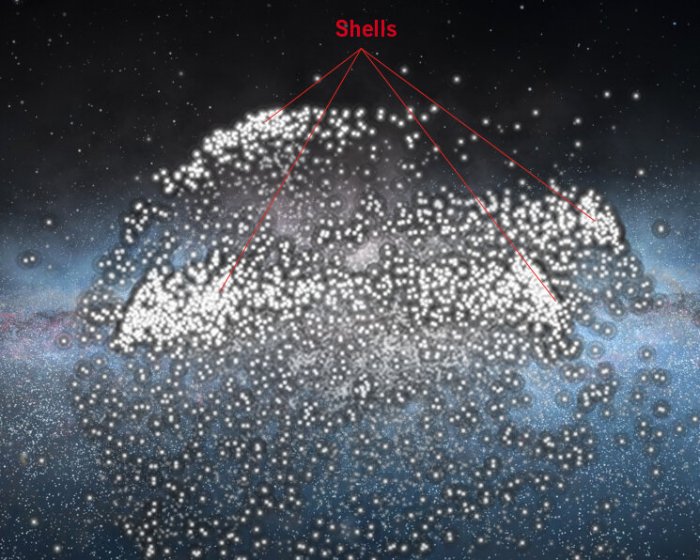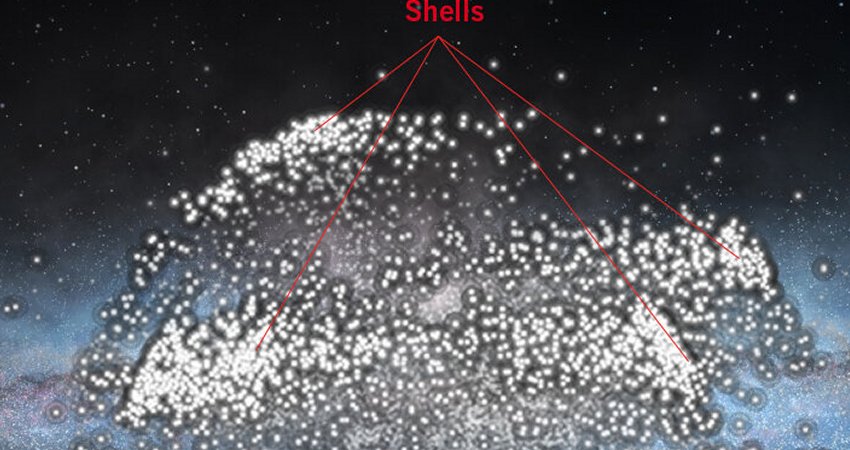Eddie Gonzales Jr. – MessageToEagle.com – Astronomers report a series of “shell structures” that are evidence of a gigantic collision caused by a dwarf galaxy that plunged into the center of the Milky Way and was ripped apart by the gravitational forces of the collision.
This celestial event took place nearly 3 billion years ago in the vicinity of the Virgo constellation.

Astronomers identified an unusually high density of stars called the “Virgo Overdensity” about two decades ago. Star surveys revealed that some of these stars are moving toward us while others are moving away, which is also unusual, as a cluster of stars would typically travel in concert.
Based on emerging data, astrophysicists at Rensselaer Polytechnic Institute proposed in 2019 that the overdensity was the result of a radial merger, the stellar version of a T-bone crash.
“When we put it together, it was an ‘aha’ moment,” said Heidi Jo Newberg, Rensselaer professor of physics, applied physics, and astronomy, and lead author of the paper.
“This group of stars had a whole bunch of different velocities, which was very strange. But now that we see their motion as a whole, we understand why the velocities are different, and why they are moving the way that they are.”
The newly announced shell structures are planes of stars curved, like umbrellas, left behind as the dwarf galaxy was torn apart, literally bouncing up and down through the center of the galaxy as it was incorporated into the Milky Way, an event the researchers have named the “Virgo Radial Merger.”
Each time the dwarf galaxy stars pass quickly through the galaxy center, slow down as they are pulled back by the Milky Way’s gravity until they stop at their farthest point, and then turn around to crash through the center again, another shell structure is created.
More violent “radial mergers” are considered far less common.
“There are other galaxies, typically more spherical galaxies, that have a very pronounced shell structure, so you know that these things happen, but we’ve looked in the Milky Way and hadn’t seen really obvious, gigantic shells,” said Donlon, who was lead author on the 2019 paper that first proposed the Virgo Radial Merger,” Thomas Donlon II, a Rensselaer graduate student and first author of the paper, said in a press release.
The finding poses potential implications for a number of other stellar phenomena, including the Gaia Sausage, a formation of stars believed to have resulted from the merger of a dwarf galaxy between 8 and 11 billion years ago.
Written by Eddie Gonzales Jr. – MessageToEagle.com Staff







